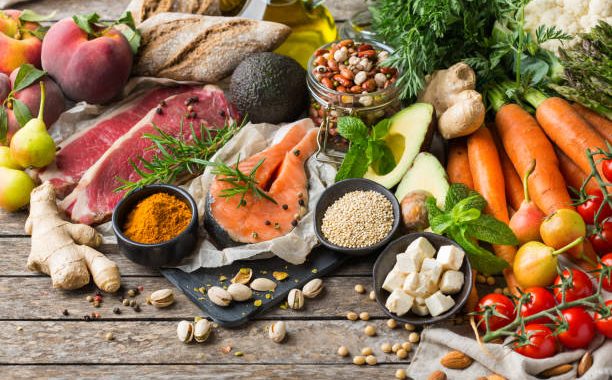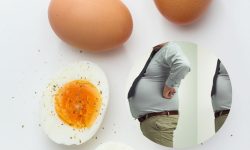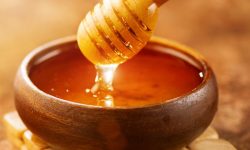Introduction
Lower belly fat is a global health issue. About 60% of the population (above 18 years) in the US has belly fat . Visceral fat is linked to insulin resistance, which is a precursor for diabetes . It can also impair insulin sensitivity in liver and muscle tissue. This increases the chances of metabolic diseases. Hence, it is important to get rid of belly fat. Here are three ways to reduce lower belly fat.
You can measure your belly fat at home by using a simple measuring tape. Measure your waist and hip circumference to get the ratio.
According to the WHO, a healthy waist to hip ratio (WHR) is 0.80 or less in women and 0.90 or less in men. A WHR of 1 or more indicates abdominal obesity or belly fat .
How To Reduce Lower Belly Fat
There are no fast tricks to get rid of lower belly fat. You need to have a holistic approach (exercise, diet, and lifestyle management) to obtain positive and sustainable results.
1. Exercise
Exercise is one of the most effective ways to lower belly fat. However, focusing only on ab and core exercises is not going to help out. Spot reduction of the fat around your belly is not possible.
A study on 24 healthy individuals doing abdominal exercise for six weeks showed no significant benefit in reducing abdominal fat . Instead, you need to target different muscle groups with aerobic exercises. Several studies have found that aerobic exercises can help reduce belly fat .
Try out different forms of exercises – like strength training, cardio, and aerobic exercises – for better results. On your abs days, do the following exercises with some cardio to target your core muscles :
- Leg Raises – 3 sets of 15 reps
- Scissor Kicks – 3 sets of 15 reps
- Leg In And Out – 3 sets of 15 reps
- Standing Alternate Leg Kicks – 3 sets of 15 reps
- Lying Leg Curls – 3 sets of 15 reps
- Mountain Climbers – 3 sets of 15 reps
- Bicycle Crunches – 3 sets of 15 reps
- Russian Twists – 3 sets of 20 reps
- Burpees – 3 sets of 10 reps
- Flutter Kicks – 3 sets of 20 reps
- Superman – 2 sets of 3 reps
2. Healthy Diet
- Cut Down On Carbs
- Include Protein In Every Meal
A study carried on 27 overweight/obese men by the University of Missouri found that a high-protein diet improves appetite control and satiety to promote weight loss.
Proteins take longer to digest and release PYY, a gut hormone that decreases appetite and promotes satiety. They also help build lean muscle mass, a site where a number of mitochondria (cell organelles in which sugar gets converted to usable energy) are present, boosting up metabolism .
You should aim for a 25-30% protein intake of total calories. Use coconut oil for grilling or sautéing your protein as a study has shown that medium- and long-chain triacylglycerol (MLCT) suppresses body fat accumulation in humans .
- Consume Healthy Fats
Healthy fats are a great way to reduce inflammation in the body. Chronic inflammation is directly linked to obesity. Include polyunsaturated fats like olive oil, avocado, nuts, and seeds, clarified butter, fatty fish rich in omega-3 fatty acids in your diet to lower inflammation ).
- Bulk Up On Fiber
When the soluble fiber found in fruits, vegetables, and whole grains is fermented in the large intestine, it produces two gut hormones – glucagon-like peptide (GLP-1) and peptide YY (PYY). These hormones increase satiety (15). The best ways to incorporate fiber in the diet is being regular with your fruit and vegetable intake, replacing regular grains with whole grains, and adding legumes to your diet.
- Avoid Refined Sugar
If you want to lose belly fat, you need to avoid refined sugar in any form – colas, candies, chocolates, cakes, cookies, etc. Many studies have shown that consumption of sugar-sweetened beverages increases the chances of obesity. A positive correlation was established between the intake of sugary beverages and weight gain/obesity among children and adults (16).
Use jaggery, dark brown sugar, organic honey, and organic maple syrup instead of refined sugar when you crave something sweet.
- Drink Green Tea
Green tea is the perfect detox drink when you are trying to lose belly fat. It contains caffeine and EGCG (epigallocatechin gallate), which can have powerful effects on metabolism. It helps nullify the harmful effects of free oxygen radicals, thereby preventing toxin accumulation (17). The effect may be strengthened when green tea consumption is combined with exercise.
Have two to three cups (8 fluid ounces) of green tea per day.
- Stay Hydrated
Staying hydrated is the key to flushing out toxins. Consume less energy-dense (low-calorie) foods to lose weight. Drinking 500 ml water 30 minutes before a meal can lead to moderate weight loss.
A study in The Journal of Clinical Endocrinology and Metabolism states that drinking 500 ml of water increases metabolic rate by 30% because of water-induced thermogenesis. This can be beneficial for weight loss.

3. Lifestyle Management
If you are following a great diet but still not losing your belly fat, then your lifestyle could be to blame. Stress, inadequate sleep, and bad lifestyle habits are the major culprits of belly fat.
- Stress Management
Stress and weight gain are interconnected. A study published in Obesity Research states that uncontrollable stress increases the cortisol levels in your body, which causes fat deposition in the abdomen area. This increase in cortisol levels can also increase the urge for “comfort foods” like refined carbs, fried foods, and sweets. These foods cause fat deposition, specifically in the abdominal area. A few things you can do to reduce stress are:
- Do deep breathing exercises in the early morning and before going to bed.
- Walk outdoors for 15-20 minutes (slow pace work) to get some fresh air.
- Spend some time on a hobby you enjoy.
- Take some time out from your busy schedule to enjoy with your family and friends.
- Proper Sleep
Sleep helps recharge your body and mind. Sleep deprivation increases inflammation and toxin build-up in the body. A study published in Obesity Journal on obese women showed that sleeping more than 7 hours per night increased the likelihood of weight-loss success. Therefore, the quality and quantity of sleep are vital factors in losing belly fat.

Conclusion
You cannot lose all your belly fat within a week or a month. Abdominal fat is stubborn and requires a long-term strategy. Start with a good exercise regimen, eat well, and reduce stress to gradually reduce the inches from your belly.
22 sources
- Indicator Details: Percentage with Abdominal Obesity by Survey Year, Centers for Disease Control and Prevention.
https://nccd.cdc.gov/ckd/detail.aspx?Qnum=Q146 - Insulin resistance: definition and consequences, Experimental and Clinical Endocrinology & Diabetes, US National Library of Medicine, National Institutes of Health.
https://www.ncbi.nlm.nih.gov/pubmed/11460565 - What causes the insulin resistance underlying obesity?Current Opinion In Endocrinology, Diabetes, and Obesity, US National Library of Medicine, National Institutes of Health.
https://www.ncbi.nlm.nih.gov/pmc/articles/PMC4038351/ - Waist Circumference and Waist-Hip Ratio, Report of a WHO Expert Consultation, World Health Organization.
https://apps.who.int/iris/bitstream/handle/10665/44583/9789241501491_eng.pdf;jsessionid=B75820A2C301B29DA1FE75C7ADDE596B?sequence=1 - The effect of abdominal exercise on abdominal fat, Journal of Strength and Conditioning Research, US National Library of Medicine, National Institutes of Health.
https://www.ncbi.nlm.nih.gov/pubmed/21804427 - A systematic review and meta-analysis of the effect of aerobic vs. resistance exercise training on visceral fat, Obesity Reviews, US National Library of Medicine, National Institutes of Health.
https://www.ncbi.nlm.nih.gov/pubmed/21951360 - Effects of a moderate low-carbohydrate diet on preferential abdominal fat loss and cardiovascular risk factors in patients with type 2 diabetes, Diabetes, Metabolic Syndrome and Obesity: Targets and Therapy, US National Library of Medicine, National Institutes of Health.
https://www.ncbi.nlm.nih.gov/pmc/articles/PMC3138148/ - Dietary fiber and satiety: the effects of oats on satiety, Nutrition Reviews, US National Library of Medicine, National Institutes of Health.
https://www.ncbi.nlm.nih.gov/pmc/articles/PMC4757923/ - Health-Promoting Components of Fruits and Vegetables in the Diet, Advances in Nutrition, US National Library of Medicine, National Institutes of Health.
https://www.ncbi.nlm.nih.gov/pmc/articles/PMC3650511/ - The effects of consuming frequent, higher protein meals on appetite and satiety during weight loss in overweight/obese men, Obesity, US National Library of Medicine, National Institutes of Health.
https://www.ncbi.nlm.nih.gov/pubmed/20847729 - A high-protein diet for reducing body fat: mechanisms and possible caveats, Nutrition & Metabolism, US National Library of Medicine, National Institutes of Health.
https://www.ncbi.nlm.nih.gov/pmc/articles/PMC4258944/ - Chapter 2 – Anatomy of Skeletal Muscle and Its Vascular Supply, Skeletal Muscle Circulation, US National Library of Medicine, National Institutes of Health.
https://www.ncbi.nlm.nih.gov/books/NBK57140/ - The application of medium-chain fatty acids: edible oil with a suppressing effect on body fat accumulation, Asia Pacific Journal of Clinical Nutrition, US National Library of Medicine, National Institutes of Health.
https://www.ncbi.nlm.nih.gov/pubmed/18296368 - N-3 Polyunsaturated Fatty Acids and Inflammation in Obesity: Local Effect and Systemic Benefit, BioMed Research International, US National Library of Medicine, National Institutes of Health.
https://www.ncbi.nlm.nih.gov/pmc/articles/PMC4538411/ - Dietary Fibre and Its Effect on Health, International Journal of Research and Analytical Reviews.
http://ijrar.com/upload_issue/ijrar_issue_558.pdf - Intake of sugar-sweetened beverages and weight gain: a systematic review, The American Journal of Clinical Nutrition, US National Library of Medicine, National Institutes of Health.
https://www.ncbi.nlm.nih.gov/pmc/articles/PMC3210834/ - Epigallocatechin Gallate Is the Most Effective Catechin Against Antioxidant Stress via Hydrogen Peroxide and Radical Scavenging Activity, Medical Science Monitor, US National Library of Medicine, National Institutes of Health.
https://www.ncbi.nlm.nih.gov/pmc/articles/PMC6247744/ - Efficacy of water preloading before main meals as a strategy for weight loss in primary care patients with obesity: RCT, Obesity, US National Library of Medicine, National Institutes of Health.
https://www.ncbi.nlm.nih.gov/pubmed/26237305/ - Water-induced thermogenesis, The Journal of Clinical Endocrinology and Metabolism, US National Library of Medicine, National Institutes of Health.
https://www.ncbi.nlm.nih.gov/pubmed/14671205 - Stress-induced cortisol response and fat distribution in women, Obesity Research, US National Library of Medicine, National Institutes of Health.
https://www.ncbi.nlm.nih.gov/pubmed/16353426 - Stress and Obesity: Are There More Susceptible Individuals?Current Obesity Reports, US National Library of Medicine, National Institutes of Health.
https://www.ncbi.nlm.nih.gov/pmc/articles/PMC5958156/ - Relationship between sleep quality and quantity and weight loss in women participating in a weight-loss intervention trial, Obesity, US National Library of Medicine, National Institutes of Health.
https://www.ncbi.nlm.nih.gov/pubmed/22402738
Recommended Articles
Latest posts by Charushila Biswas (see all)
- 15 Best Cuticle Scissors For Beautiful Fingernails – June 12, 2020
- 13 Best Moisturizers For 4C Hair For Soft And Nourished Coils – June 10, 2020
- 13 Best Color-Safe Dandruff Shampoos (2020) For All Hair Types – May 21, 2020
- Sirtfood Diet – Healthy Diet Plan For Faster Weight Loss – May 20, 2020
- 13 Best Lifting Straps Of 2020 – Reviews And Buying Tips – May 7, 2020


















